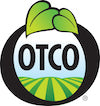What is A2 Milk and Should You Drink It?

California residents might soon be seeing a newcomer to their dairy case. It’s called A2 milk and it’s all the rage in Australia. The company is now hopeful that it can take up some retail space in U.S. stores, launching its unique milk product on California shelves this April.
But what is A2 milk, exactly? It sounds a lot more scientific than appetizing. But according to Food Navigator, it’s not all that high-tech after all. “Most dairy cows produce milk containing A1 and A2 beta casein, which form around 30% of the total protein in milk solids.”
It turns out that, at least according to the a2 Milk Company making this product, that the A1 beta casein is most responsible for the digestive issues common with milk sensitivities. So the theory is that a milk that only contains A2 beta caseins could be easier to digest. (Note: this does not include people with dairy allergies—all milk products should be avoided in that case.)
According to the a2 Milk Company, approximately 30 percent of cows exclusively produce A2 milk. A simple non-invasive genetic test allows the company to identify these cows in the herd so they can be isolated to produced the A2 milk.
The a2 Milk Company says there is science to back up its findings: “There are now more than 100 peer reviewed studies looking at A1 vs A2 and most show there are differences in response and that A1 is often the culprit behind digestive discomfort,” U.S. Nutrition Director Bonnie Johnson, RD, MS, told Food Navigator.
Already, the New Zealand-based company has taken up nearly ten percent of the fluid milk market share in Australia with its A2 milk, and it anticipates similar success in the U.S. market.
But should you buy it?
While A2 milk may be helpful for people suffering with dairy sensitivities, there’s one glaring problem with the product: it’s not organic. The slight relief you may experience from avoiding the A1 beta casein seems to be offset by all of the not-so-appetizing antibiotics, growth hormones, and GMOs fed to the conventional cows. So if dairy is a sometimes-issue for your health, maybe skip drinking milk on a daily basis altogether. But when you do want to consume dairy products, make sure they’re organic.
Leave a comment
Comments will be approved before showing up.


